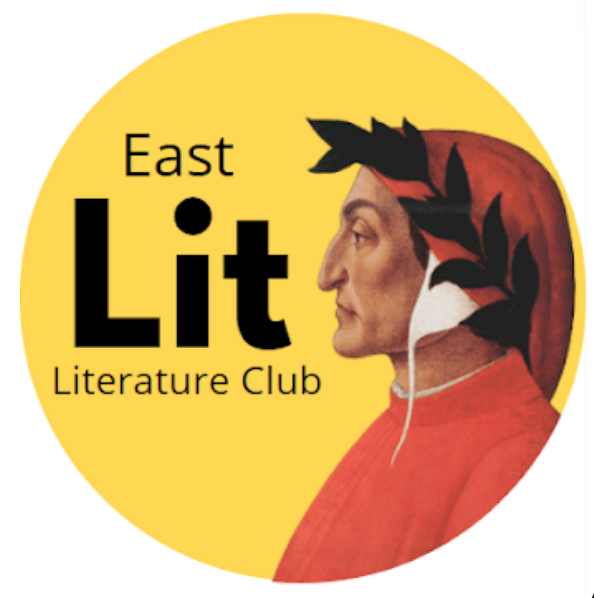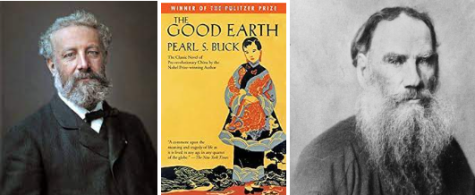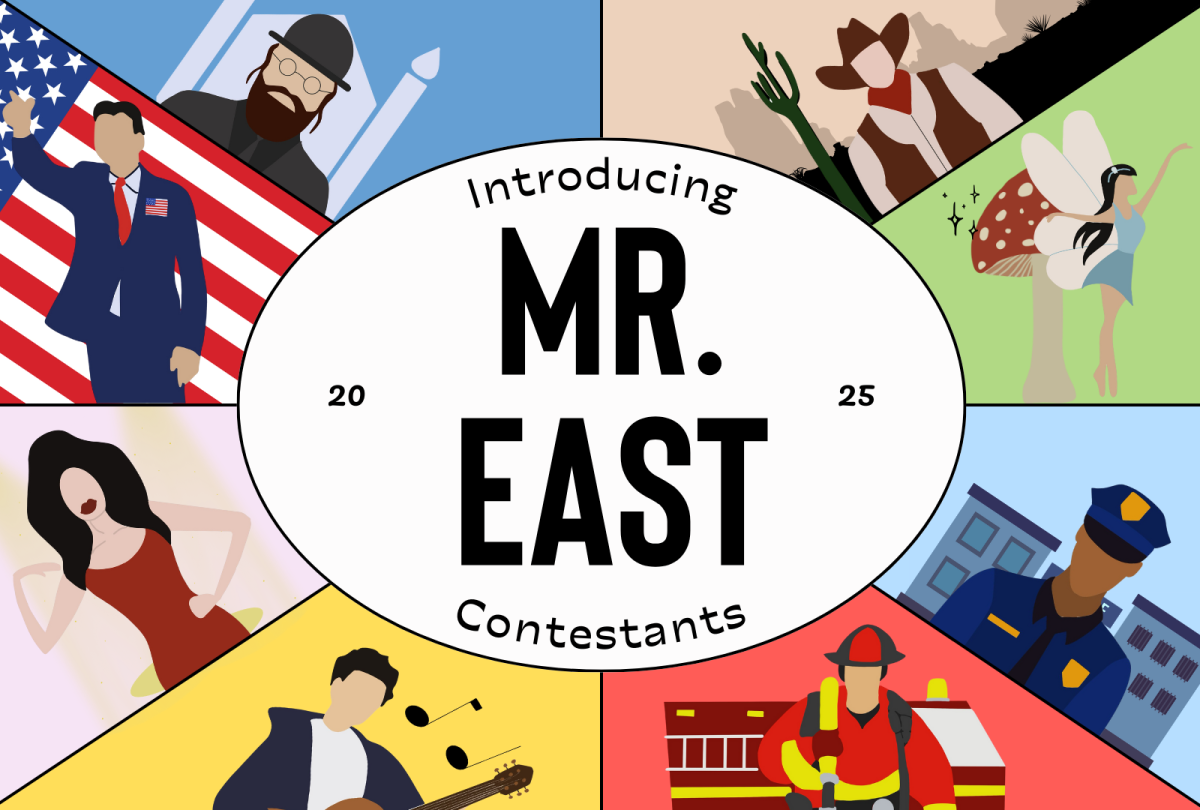East Literature Club’s January Recommendations

East Literature Club is a club at Cherry Hill East dedicated to people who love reading.
February 1, 2023
January-a month of resolutions and change. A resolution many people make every year: to read more. This January, East Literature Club hopes you’ll pick up any and all of these author and book recommendations to fulfill whatever your reading goals for the new year might be. Happy Reading!
Must Reads in January-
1. Jules Verne-Review by Pranav Palle (‘23)
Jules Gabriel Verne was born on February 8, 1828, in Nantes, France. From a young age, Verne was interested in literature, however, his father wanted him to become a lawyer, so he was sent to boarding school. While attending boarding school he would write short stories and became more and more attracted to literature, especially theater. He obtained a law degree in 1849. He received pressure from his father and rejected his father’s offer to open a law firm in Nantes. He wrote several plays as secretary of the Théâtre Lyrique (1852–54), and published short stories and scientific essays in the periodical Musée des families.
When he married Honorine de Viane in 1857, he became a broker but never gave up his passion for writing. In 1861, the couple’s only child, Michel Jean Pierre Verne, was born. His career as a writer failed to gain traction until he met Hetzel, a publisher, who published a large portion of Verne’s novels.
By 1869, his novels started getting translated into English and he began living comfortably off writing. However, he faced strife in his personal life such as being shot by his nephew, becoming limped, and the death of Hetzel and his mother. These events caused a shift in the tone of his novels from that point on.
In his later life, he established his residence in the northern French city of Amiens, and began serving on its city council in 1888. Stricken with diabetes, he died at home on March 24, 1905.
However, that is not the end of his legacy. Even years later manuscripts have been published long after he died. Backwards to Britain was published in 1989, 84 years after Verne’s death.
In total, Verne authored more than 60 books (most notably the 54 novels comprising the Voyages Extraordinaires), as well as dozens of plays, short stories and librettos. He created hundreds of memorable characters and imagined countless innovations years before their time, including the submarine, space travel, terrestrial flight, and deep-sea exploration which is why he is often referred to as the “Father of Science Fiction”.
 2. Leo Tolstoy-Review by Eric Li (‘23)
2. Leo Tolstoy-Review by Eric Li (‘23)
Born on September 9th, 1828, in Yasnaya Polyana, Russia, Leo Nikolayevich Tolstoy became the fourth child of Nikolay Tolstoy and Marya Tolstaya. At nine, Tolstoy became an orphan, and lived under the care of relatives, and enjoyed a happy childhood.
At sixteen, Tolstoy matriculated at Kazan University, studying law and oriental languages. Although intelligent, Tolstoy’s professors described him as “unable and unwilling to learn.” Tolstoy eventually dropped out, never completing his degree. Afterward, Tolstoy lived a wild and dissipated lifestyle in his twenties, but became dissatisfied with his unproductive life. Within a desire to reform himself, Tolstoy devoted himself to writing and joined the Russian army. Tolstoy published Childhood, his first novel, in 1852 and enlisted himself in the army, serving as an artillery officer. His experiences in the army provided crucial insight into warfare that he would utilize when writing War and Peace.
After retiring from the army, Tolstoy wrote tirelessly during the years 1863-1869, completing War and Peace, which became a monumental success. War and Peace chronicles the lives of three aristocratic Russian families during Napoleon’s invasion of Russia in 1812, and its extraordinarily realistic depictions of warfare has won the praise of both Russian generals and writers, along with the literate public. After the publication of War and Peace, Tolstoy wrote Anna Karenina during the years 1875-1877. Anna Karenina describes the lives of families: the doomed affair of Anna Karenina and Count Vronsky as well as the personal development of Konstantin Levin, who represents Tolstoy himself. Both War and Peace and Anna Karenina have become known as two of the greatest novels ever written.
Later in life, Tolstoy devoted his time to writing novellas and short stories containing a moral lesson. During this stage, Tolstoy wrote The Death of Ivan Ilych (1886), an instructive novella that explores the question of confronting mortality. Other notable works include The Kreutzer Sonata (1889) and Resurrection (1990).
Tolstoy’s style of depicting the perceptible everyday events in life, as well as flawlessly describing the conscious thoughts of his characters to craft uplifting, profound, and entertaining stories has made him one of the best writers in history.
3. The Good Earth by Pearl Buck-Review by James Alexander
Set in rural China in the early twentieth century, The Good Earth, written by Pearl Buck, tells the rags-to-riches story of the farmer Wang Lung. The novel begins on Wang Lung’s wedding day; his sickly father has arranged for him to marry O-Lan, a slave from the wealthy House of Hwang. In the following months, Wang Lung and O-Lan live frugally and tend to the fields through laborious days. Their combined effort yields larger harvests, of which they sell the surplus. Meanwhile, the Hwang family begins to face the repercussions of their wastefulness: they must sell their land if they wish to uphold their prodigal habits. Wang Lung seizes this opportunity, in the process taking his first steps towards his future prosperity. The winding path of Wang Lung’s adulthood is told through chapters which are separated up to several months apart from each other, lending credibility that each detail Buck includes is necessary to understanding the story.
One aspect of the novel which stood out to me was Buck’s jarring depiction of wealth inequality. The lifestyles of the peasant workers and farmers are vividly detailed, as are the verandas and great halls of the House of Hwang. This contrast allows the story to detail the many sides of a complex society without losing sight of the connection between humans and nature. Buck captures these concepts expertly, building themes of social class conflicts, morality, and the importance of simplicity. In retrospect, The Good Earth was an unexpected page-turner- I always found myself immersed in Buck’s portrayal of the land and its people, but I could never be sure what to expect next.







